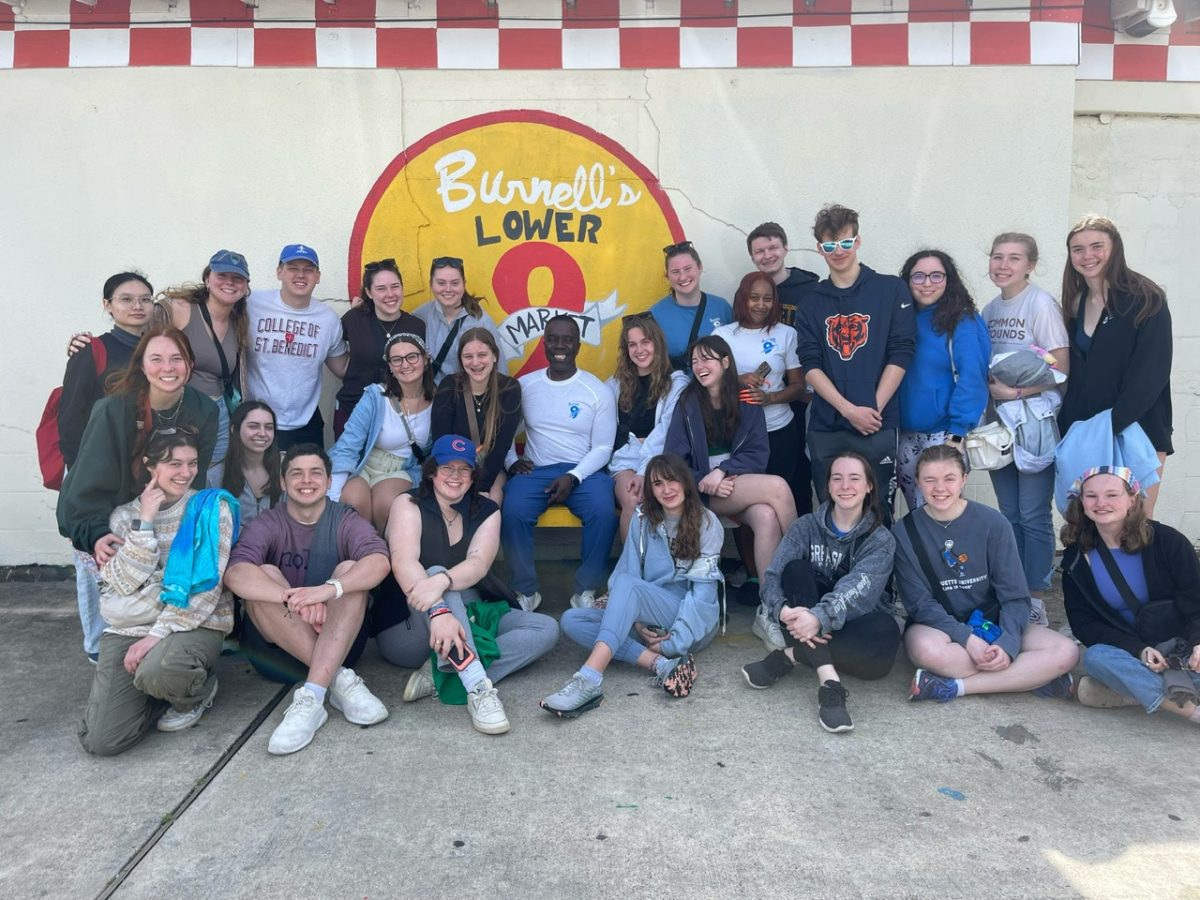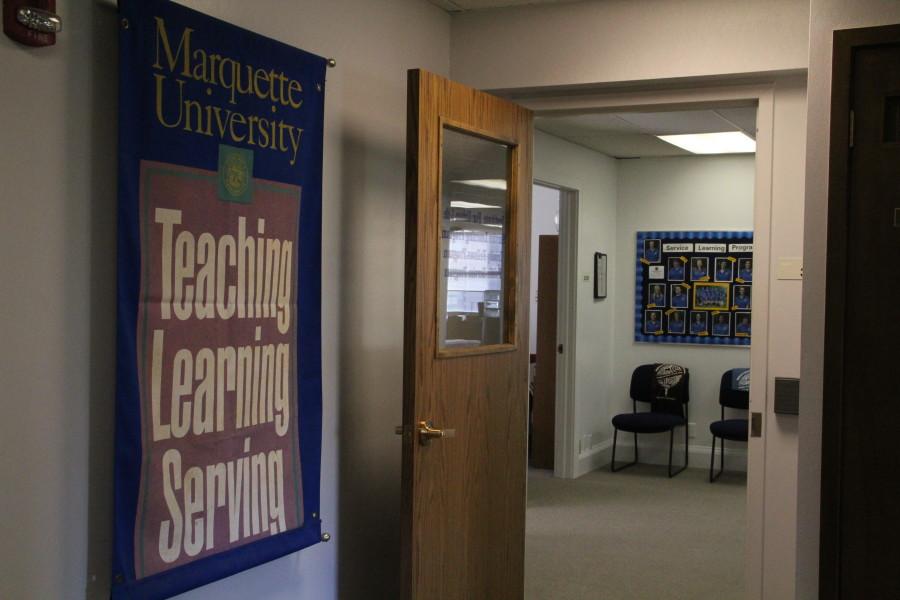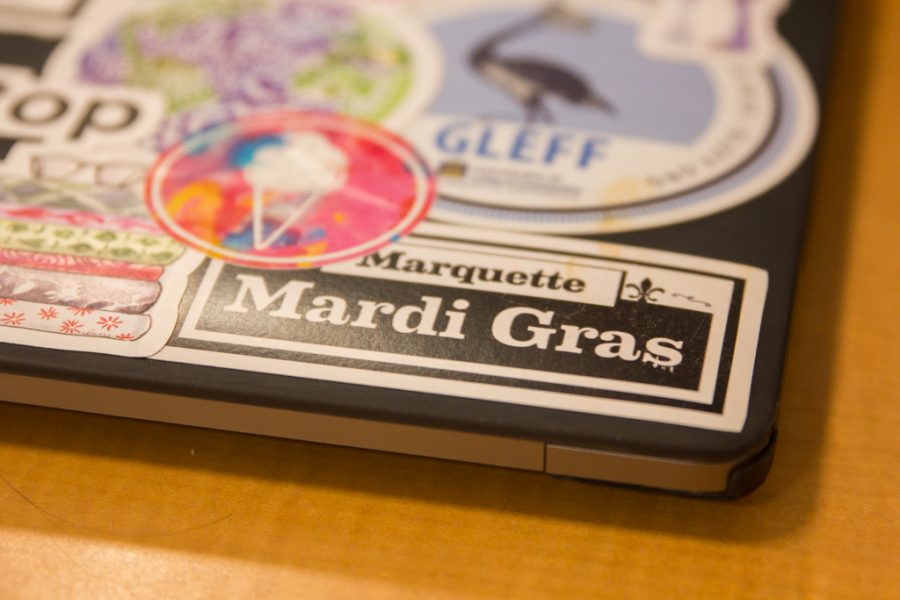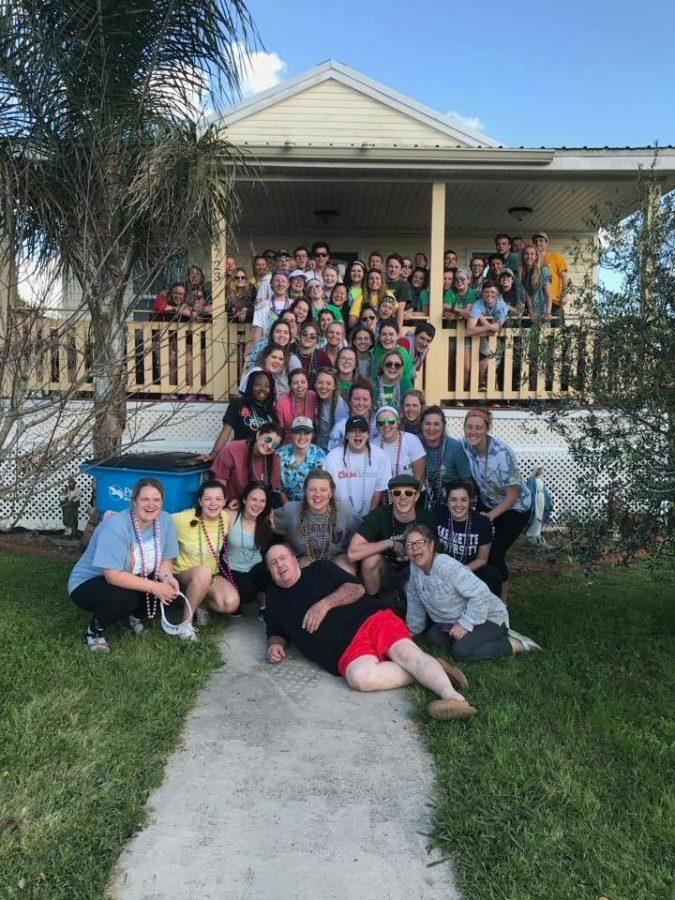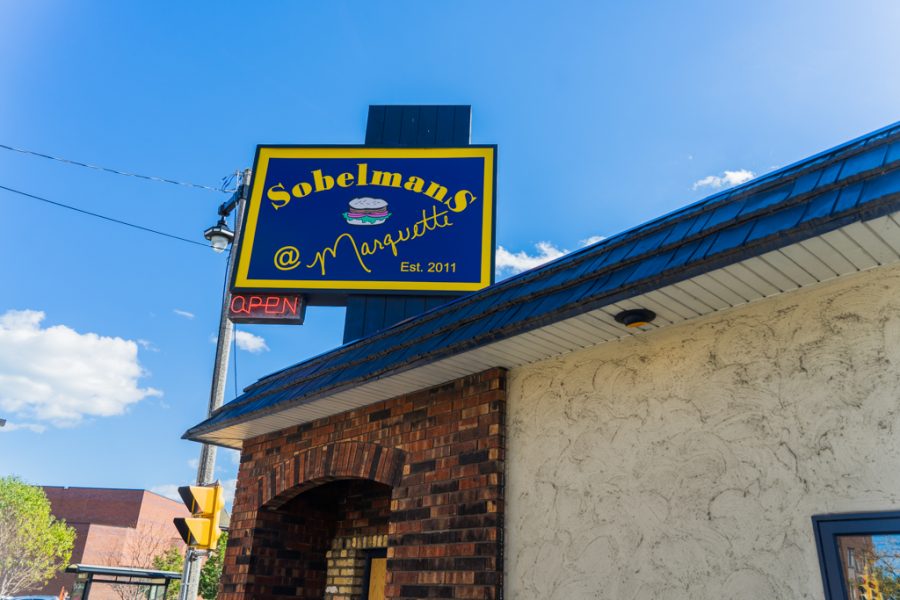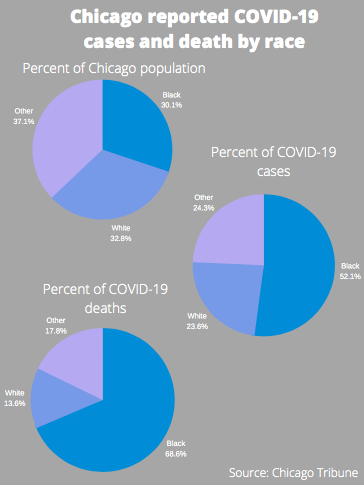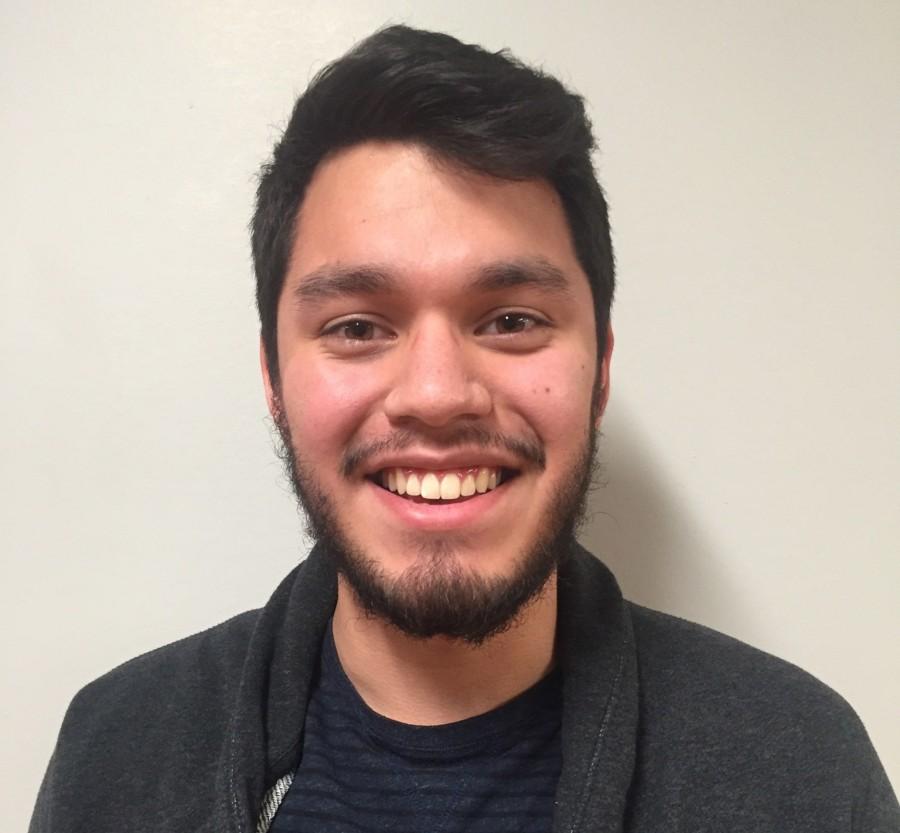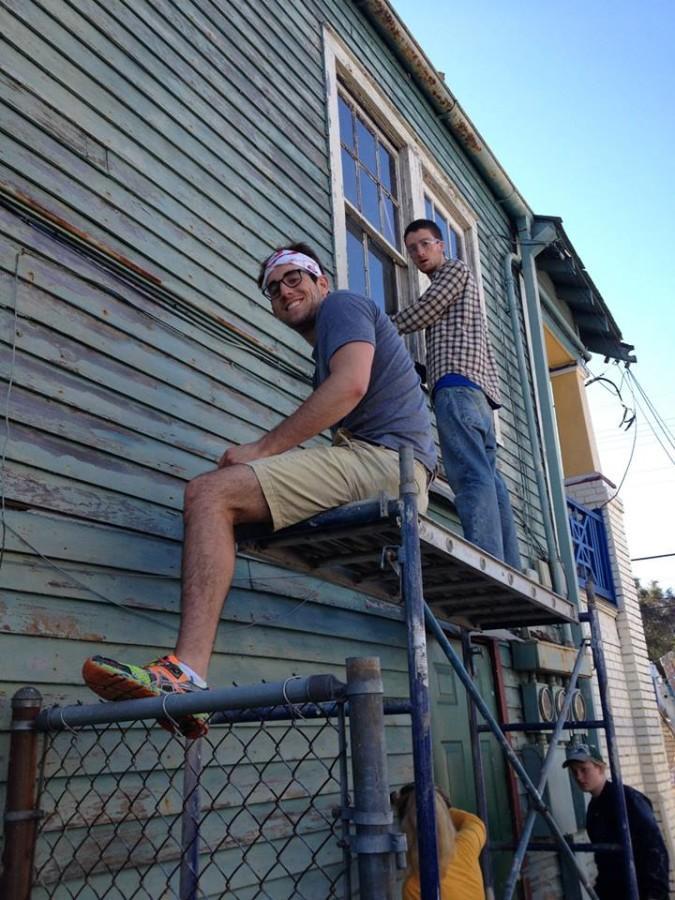Mardi Gras, which is French for “Fat Tuesday,” is a pre-Lenten celebration in New Orleans that includes a months-long Carnival season commencing in early January and concluding with major festivities in late February or early March.
This year, Fat Tuesday falls on March 4. Leading up to this day where excess amounts of beignets, jambalaya and pączkis are consumed is the main Carnival celebration in New Orleans. This period of time is filled with citywide festivities, decoration and parades all throughout The Big Easy.
But at Marquette University, the phrase “MARDI GRAS” represents something more than gold, green and purple beads, exuberant crowds lining Canal Street, king cakes and decked-out parade floats. Instead, it stands for “Making a Real Difference in Gulf Regions and Areas Surrounding,” a disaster-relief service organization that works to provide aid to communities affected by natural and man-made crises.
“I’ve always been into volunteering since high school, and I was looking for something I could do in addition to weekly stuff here,” Kyla Schwager, a senior in the College of Nursing and VP of communications and marketing, said.
Schwager and Molly Barnes, a senior in the College of Business Administration and president of MARDI GRAS, have both been involved with the service organization since their first years of college.
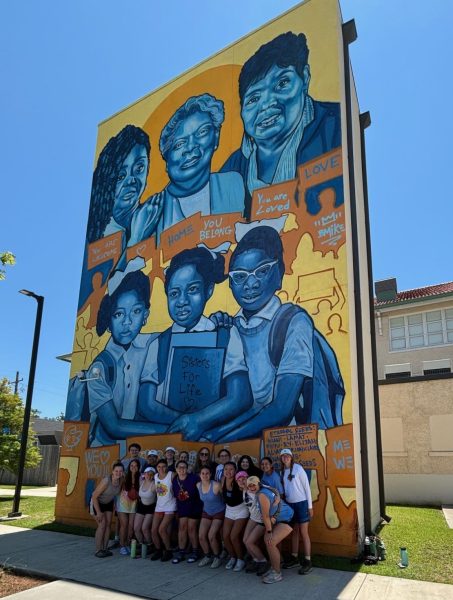
Educating volunteers
Barnes and Schwager explained how the organization focuses on education about the racial, social and economic factors that affect how people get hurricane relief, especially in cases like Hurricane Katrina in New Orleans that are not as straightforward because of federal failures.
A key part of the MARDI GRAS trips, besides driving to the work location and working on projects, is learning the history of the places the group is visiting and making connections with the individuals whose houses or communities are being repaired.
“We hear people’s firsthand stories, and it makes you really empathetic toward the people affected by that, especially because of the wrongs that were committed,” Barnes said.
While MARDI GRAS volunteers visit art galleries, historical sites and explore the cities after work hours, Schwager noted the group makes sure to avoid “voluntourism,” meaning they are visiting to learn and volunteer, not just to tour a new place.
Erin Hubeli, a senior in the College of Business Administration and VP of finance, said the group also spends a lot of time in deep reflection while learning the history of the cities they visit, especially in New Orleans.
“We focus more on what work we do rather than where we’re doing it, which I think makes a big difference,” Hubeli said.
Creating connections
Another meaningful aspect of these service trips is the relationships formed with the homeowners MARDI GRAS is helping, primarily in the Lower Ninth Ward neighborhood of New Orleans, which had most of its community wiped away by Hurricane Katrina.
Schwager explained that she decided to keep coming on trips because of how inclusive the other volunteers were and how connected they were to the locals whose houses they worked on.
“We have homeowners that we see on every trip. They make us dinner, tell us their stories every time and you really get a sense of a found family,” Schwager said. “Our big MARDI GRAS thing is connecting with your found home and the real meaning of home.”
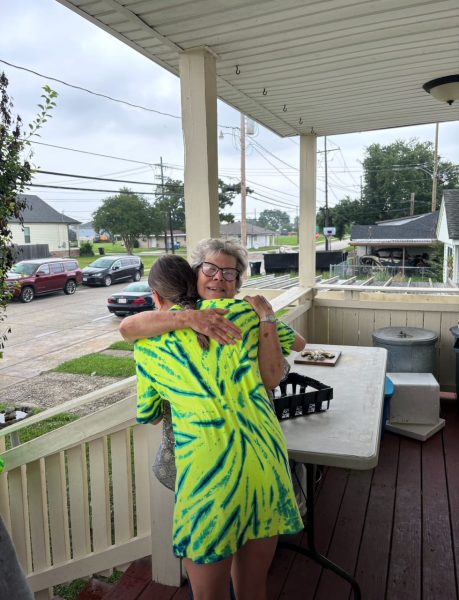
One of those New Orleans homeowners is Reisie, an elderly woman who has been a part of the MARDI GRAS trips for a long time and makes dinner for volunteers every year. Barnes said she met Reisie on her first-ever service trip and has since formed a close relationship with her, staying in touch through frequent phone calls.
“That’s what everyone says, ‘MARDI GRAS magic,’” Barnes said. “Nothing will compare to how I felt on that trip.”
Schwager also mentioned another New Orleans homeowner who made sure to learn every group member’s name and would talk to them each day they were working. Midway through the week, she cooked chicken gumbo, rice and cornbread and brought it out to the volunteers.
“You could tell that she had done that multiple times for either volunteers or the neighborhood, because people would walk by and come up and she would hand a bag out the window to them,” Schwager said. “It was the sweetest thing, and a really good image of community.”
The Lower Ninth Ward neighborhood is the foundation of many MARDI GRAS relationships and traditions, despite its residents still living with the horrific memories of Hurricane Katrina, Barnes and Schwager explained.
Schwager highlighted the importance of not forgetting the natural disaster damage done decades ago and making sure homeowners feel like MARDI GRAS volunteers care about them, even if it feels like their own city does not.
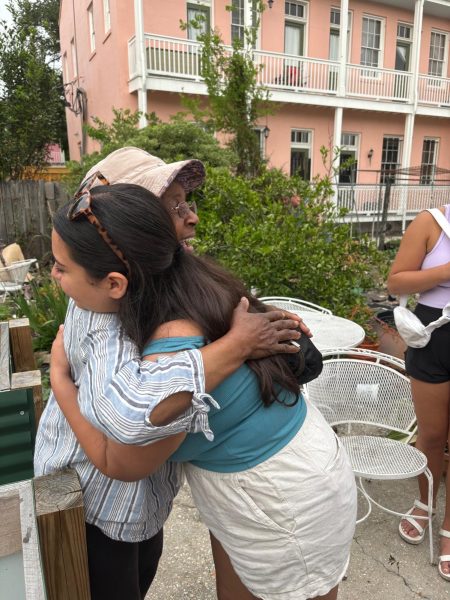
“There’s still so much work to do, which really empowers people to want to get involved,” Barnes said.
In addition to the physical repairs being done to houses, members of the group make sure to call homeowners monthly, especially the older ones who have less people to talk to.
“I think that’s what really makes MARDI GRAS special, is those connections and how we can impact lives rather than physical work,” Schwager said.
Hubeli explained how she was too shy to branch out during her first trip to New Orleans, but made a connection with a homeowner on a Fort Myers, Florida, trip. She said they exchange texts monthly and are very close.
“Working with her and seeing the joy on her face every single morning that we worked just reminded me of why I’m in the club,” Hubeli said.
Though the homeowners are the ones whose houses and communities are being repaired, Barnes said the relationship between these locals and volunteers is double-sided, because many students like Hubeli leave with a new perspective on life.
“I know so many people in MARDI GRAS who have changed their entire life and career choice based on the people they’ve talked to and met, and what we’ve done on these trips,” Barnes said.
How to get involved
While applications for the MARDI GRAS spring break trips to New Orleans and Houston are closed, applications for the May service trip will open in the weeks following spring break. Information about upcoming trips and what the organization is doing can be found on the MARDI GRAS Instagram page or website.
This story was written by Mia Thurow. She can be reached at mia.thurow@marquette.edu.


